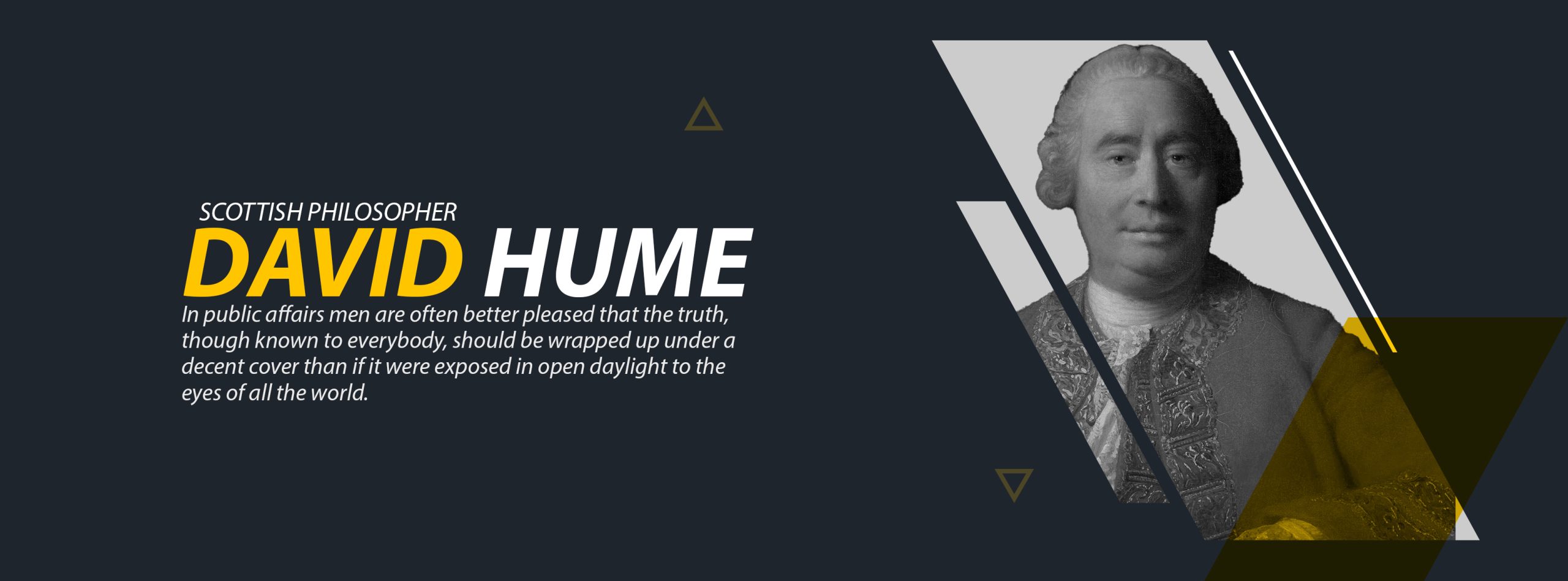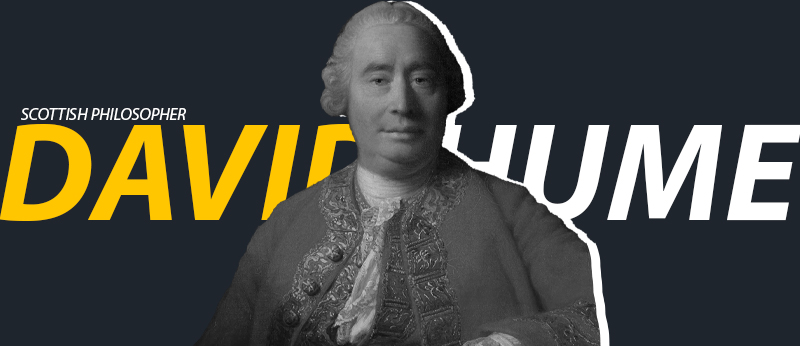Top 10 most inspiring quotes by David Hume
- Beauty is no quality in things themselves: It exists merely in the mind which contemplates them; and each mind perceives a different beauty.
- Generally speaking, the errors in religion are dangerous; those in philosophy only ridiculous.
- Reading and sauntering and lounging and dosing, which I call thinking, is my supreme Happiness.
- He is happy whose circumstances suit his temper, but he is more excellent who can suit his temper to his circumstance.
- When men are most sure and arrogant they are commonly most mistaken, giving views to passion without that proper deliberation which alone can secure them from the grossest absurdities.
- Reason is, and ought only to be the slave of the passions, and can never pretend to any other office than to serve and obey them.
- Any pride or haughtiness, is displeasing to us, merely because it shocks our own pride, and leads us by sympathy into comparison, which causes the disagreeable passion of humility.
- Heaven and Hell suppose two distinct species of men, the Good and the Bad. But the greatest part of mankind float betwixt vice and virtue.
- The identity that we ascribe to things is only a fictitious one, established by the mind, not a peculiar nature belonging to what we’re talking about.
- In public affairs men are often better pleased that the truth, though known to everybody, should be wrapped up under a decent cover than if it were exposed in open daylight to the eyes of all the world.

David Hume (1711-1776) was a Scottish philosopher, historian, economist, and essayist renowned for his significant contributions to Western philosophy and the Scottish Enlightenment. Born in Edinburgh, Hume’s early life was marked by a precocious interest in literature and philosophy. He is best known for his empiricist philosophy, which challenged traditional notions of causality and skepticism.
Hume’s most influential works include “A Treatise of Human Nature” (1739-1740), where he explored the nature of knowledge, perception, and the self, and “An Enquiry Concerning Human Understanding” (1748), a condensed version of his earlier work that presented his famous critique of induction and the problem of induction.
In addition to his philosophical writings, Hume made significant contributions to the fields of history and economics. His “History of England” remains a valuable historical work, and his economic essays, such as “Of Money” and “Of the Balance of Trade,” laid the groundwork for classical economics.
David Hume’s ideas continue to shape modern philosophy and have had a profound influence on thinkers in various disciplines. His empiricism, skepticism, and exploration of the limits of human understanding have left an enduring legacy in the world of philosophy and beyond.
👉Listen to the best music from all over the world at www.liveonlineradio.net #David_Hume #quotes #FM #Online_radio #radio #live_online_radio #live #world_radio





